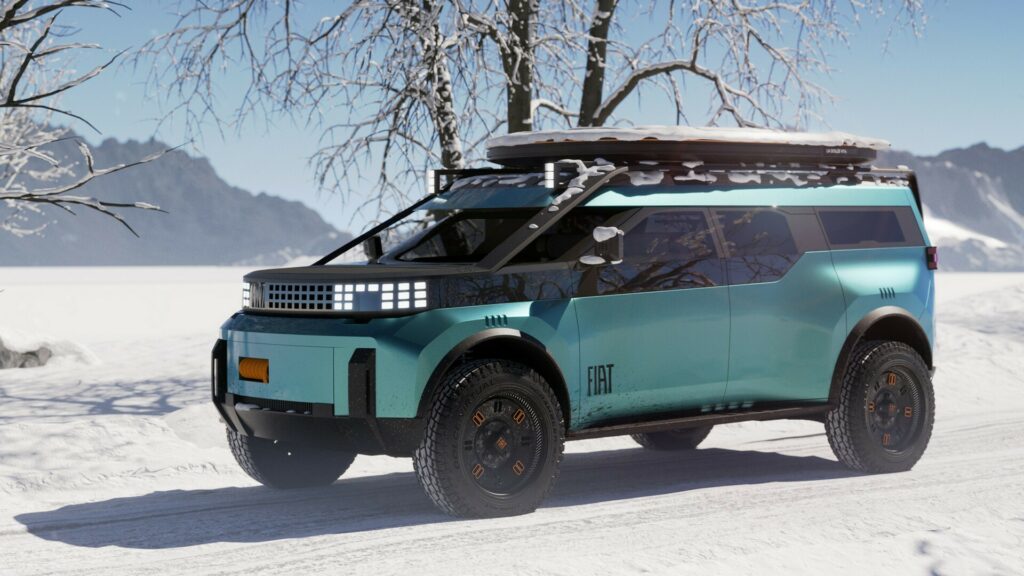Updated Fiat Dolce Camper Concept
At the auto show in São Paulo, Fiat presented an updated version of the Dolce Camper concept car. This compact off-roader features a distinctive square design, pixel LED headlights, long roof rails, and a retractable roof tent.
Key Features of the Concept
Innovative Roof Solutions
The most notable feature is the rail system that extends from the hood to the rear of the car. They are equipped with additional LEDs and support the “Pandora” system – a retractable roof that resembles a puffy jacket. For convenient access to the sleeping area on the roof, a special ladder is built into the rear doors.

Interior and Technical Specifications
The minimalist dashboard includes a wooden shelf, a metal speaker, and a steering wheel inspired by the roof of the Lingotto plant in Turin. Futuristic seats with orange upholstery and cylindrical headrests continue the geometric theme of the concept. The interior accommodates four passengers with a spacious luggage compartment.
The concept is built on a “multi-energy platform” that supports electric, hybrid, and traditional internal combustion engines. This architecture is already used in models such as the Fiat Grande Panda, Opel Frontera, and Citroën C3.
Future Plans of Fiat
The manufacturer has already confirmed plans to launch one new model each year from 2026 to 2030. Among the expected novelties are the South American version of the Grande Panda, a crossover-fastback recently spotted during testing in Europe, and a possible off-roader for which this concept could serve as a prototype.
The Dolce Camper presentation took place on the eve of the São Paulo Auto Show, which will run from November 22 to 30. Alongside this concept, visitors will be able to see the limited edition Abarth Pulse Stranger Things and the Strada Pipeline pickup with a full set of Mopar accessories.
This concept demonstrates how Fiat envisions the future of compact cars for active recreation, combining eco-friendly solutions with practicality and innovative design. The ability to choose different types of power units makes the concept particularly relevant for the modern market, where buyers are increasingly looking for versatile solutions. The popularity of campers and recreational vehicles continues to grow, making such concepts strategically important for automakers.


 by
by 
